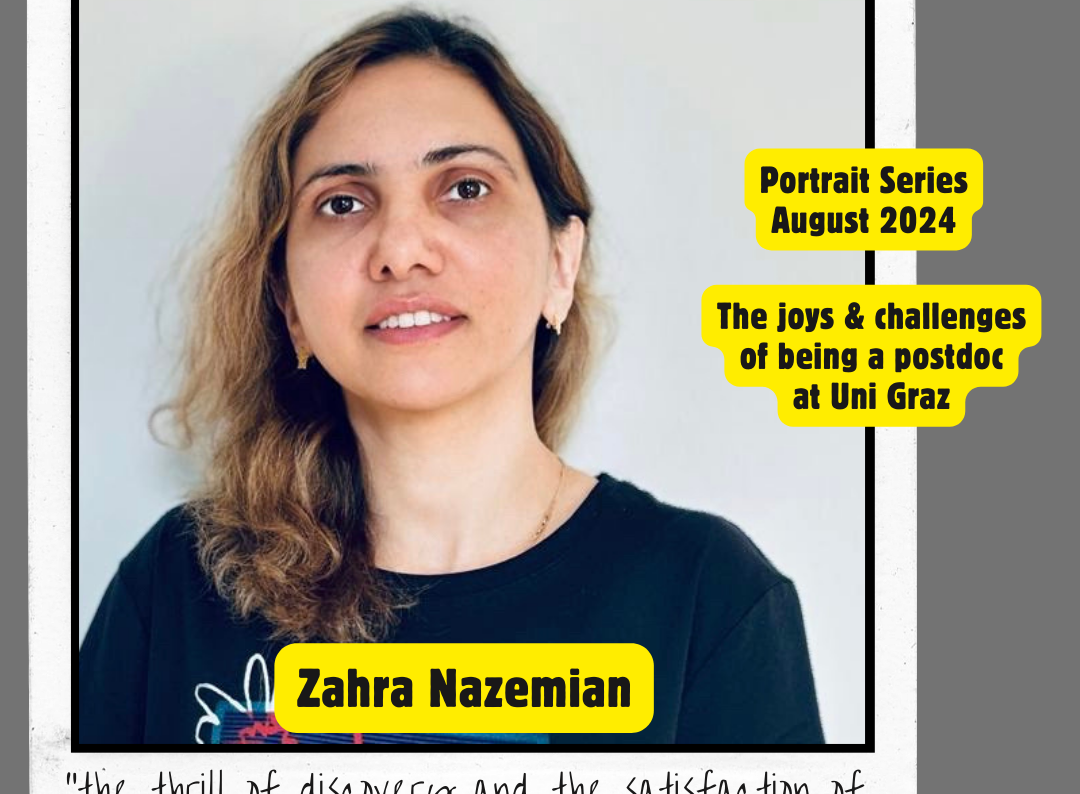This summer, you have the opportunity to get to know some of the brilliant postdoctoral researchers at our university. Our portrait series highlights the diversity within this group of University of Graz research talents - and obviously the fascinating research that they do.
Here are four questions for…
Zahra Nazemian, Department of Mathematics and Scientific Computing
1) Tell us a little about yourself, and your journey to become a researcher at Uni Graz.
My name is Zahra Nazemian, and I have always been deeply fascinated by the intricacies of algebras and modules over them. My academic journey began at Isfahan University of Technology, where I pursued a PhD in Mathematics. Throughout my studies, I collaborated with researchers in Europe, co-authoring papers and travelling regularly to attend conferences and workshops. My desire to stay abreast of the latest trends in algebra and to network with leading experts in the field motivated me to move to Europe, where I could communicate and collaborate more effectively.
Currently, I am a researcher at the University of Graz, working on a project I developed with my former mentor here. The University of Graz boasts a strong community of algebraists, and I continually learn new things through seminars and conferences. Additionally, I am actively involved in promoting the role of women in mathematics as a coordinator for the European Women in Mathematics (EWM). This role allows me to connect with other women in the field and contribute to a supportive network for female mathematicians.
2) What are you currently researching, and why do you think it is important (or interesting)?
I am currently researching Hopf algebras, focusing on braided monoidal categories, a subject I am passionate about. This area is a new and exciting world for me; as I delve into it, I find it a fascinating realm to explore. The importance of braided monoidal categories lies in their ubiquitous presence across various fields of algebra. Whether one is interested in modules over k-algebras, working with chain complexes of modules, or studying many classes of topological spaces, they are, in essence, engaging with examples of braided monoidal categories.
3) What gives you joy in your everyday work life & what are some challenges?
The joy in my everyday work life comes from the thrill of discovery and the satisfaction of solving problems. The most energizing aspect is the opportunity to discuss mathematics with my colleagues, whether in person or via Zoom. I believe every researcher faces challenges; for instance, there can be a lack of academic atmosphere, judgment from others, and direct criticisms that are sometimes not entirely accurate. However, there are also those who understand and appreciate the value of our work. These challenges push a researcher to grow, and personally, they have helped me become more independent and find my unique path in research.
4) What's next for you this year/next year?
I am excited to announce that I expect to present some of my results on Hopf algebras next year, marking a significant achievement in my research. Although there have been several obstacles that temporarily slowed my progress, I am optimistic about overcoming them. Additionally, I plan to apply for habilitation at Uni Graz with the support of my current mentor. I also aim to achieve more results in the context of braided monoidal categories (BMC). To further this research, I may arrange a trip to the UK to collaborate with experts in the field.
Questions: Johanna Stadlbauer, July 2024
Picture credit: Nazemian/privat
- P.S. You can read every portrait in this interview series with Uni Graz postdocs right now!
